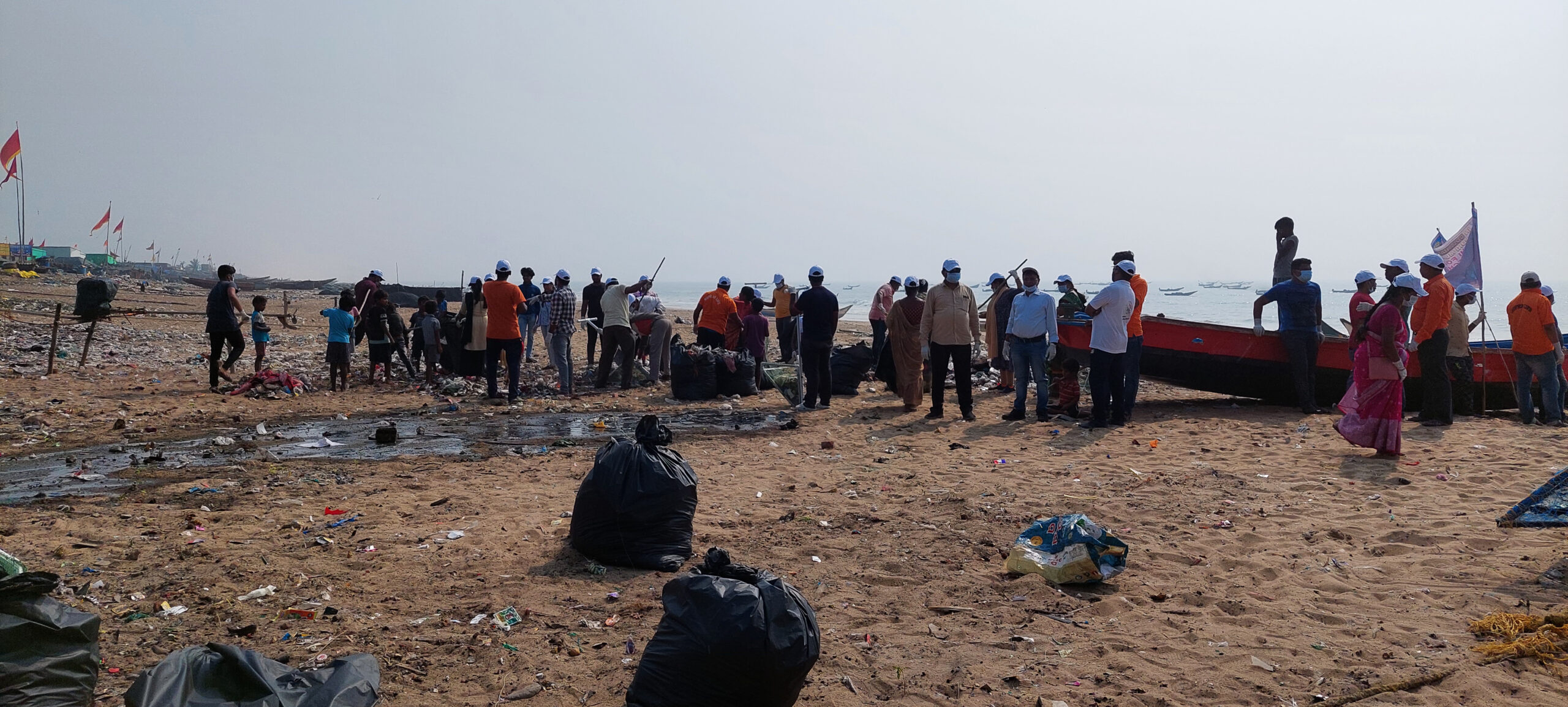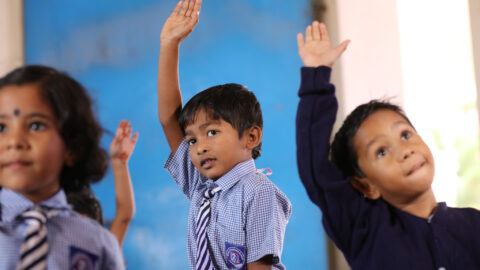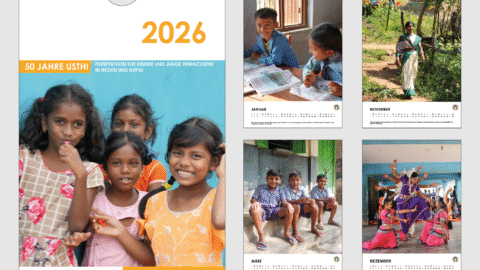Without a functional disposal system, waste becomes a long-term health problem. When the Board of Trustees accompanied the Usthi team on their annual project trip in 2022, they noticed the lack of a waste disposal system in Penthakata, the informal settlement around the Penthakata School. Waste pollutes the streets, beaches, and the sea, and residues seep into the groundwater. Large portions of the waste are burned, adding air pollution as another health risk. In line with Usthi’s holistic approach to improving the living conditions of the local population, the Board of Trustees, in collaboration with EAWAG, the water research institute of ETH Zurich, launched a waste management project.
The project went into planning in the fall of 2023 and was first implemented in early 2024. The initiative is actively accompanied on-site by an Indian waste and resource management specialist. The goal of the project is to develop a functional waste system together with the local community that will benefit the community in the long term. The yet-to-be-established Waste Management Committee, in which volunteers can participate, will play a central role in the initiative. This gives the local people the opportunity to actively contribute to the development of a new waste system and to collaboratively develop solution strategies under professional guidance. To ensure the long-term realization of a disposal strategy, the initiative also works closely with the Puri city administration.
For the first phase of the project, Kurt Bürki, founder of the Usthi Foundation and external consultant, and Felix Senn, president of the Board of Trustees, traveled to Puri together with the local expert. The goal was to initiate a dialogue with the local community and analyze the current waste situation and its impacts on people and the environment. According to the last census in 2011, the fishing village, which had 17,500 residents at the time, generated 5.4 tons of waste per day. The settlement has grown in recent years, and today the amount of waste is estimated to be around 10 tons per day.
Together with volunteers, interviews were conducted with the residents of the settlement to identify challenges. Recommended solutions by the expert include setting up a plastic collection point at the Penthakata School, establishing a waste collection service funded through small financial contributions from each household, and integrating the topic into the Penthakata School curriculum.
The project also includes regular beach cleanup activities. For the first “Beach Clean Up,” 50 volunteers came together and, using specially designed collection tools, gathered a total of 450 kilograms of waste. To raise awareness among the community about the waste issue and its health risks, a workshop was held at the Penthakata School to highlight the topic.
For the next phase of the project, the topic of waste will be integrated into the curriculum at the Usthi School to raise awareness and train the children on the issue. In the first step, teachers will be equipped with materials from EAWAG by the Indian expert to incorporate the topic into their lessons. At the same time, the Waste Management Committee will be established and trained as needed. In a subsequent step, regular workshops on waste management will be planned at the Usthi School for the Village Committee and the Penthakata community. Additionally, further Beach Clean Up days are scheduled.
Meanwhile, the local expert is working with the Waste Management Committee, EAWAG, and the city administration to further develop the existing waste collection concept, aiming to reduce and eventually eliminate illegal dumping of waste in the long term.



